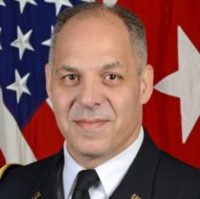
Even as the U.S. government authorized Pfizer’s coronavirus vaccine for emergency use late last week, drugmakers around the world acknowledged new challenges in developing other immunizing drugs that would bolster supplies.
Officials said 2.9 million doses of the Pfizer-BioNTech vaccine intended for U.S. healthcare workers and long-term care residents were loaded onto trucks and planes over the weekend. Those shipments offered a small ray of hope as the pandemic barreled toward another grim milestone: The death count was expected to surpass 300,000 Americans as early as today.
Late Friday, Gen. Gustave Perna, chief operating officer of Operation Warp Speed, said vaccines would arrive Monday at 145 sites, most of them affiliated with large hospitals. Arrivals at 491 additional sites are expected Tuesday and Wednesday.
Another 2.9 millions doses are being withheld by Operation Warp Speed to ensure recipients receive a required second dose after 21 days.
The roll-out of Pfizer’s vaccine — with Moderna hot on its heels with an early effective rate of at least 94% — is putting added pressure on other drugmakers. Although the Food and Drug Administration expects to have 40 millions doses of those two vaccines by year’s end, far more will be needed to supply a majority of the nation’s 330 million residents.
And Pfizer has already promised much of its 2021 production to other nations.
Some other, once-promising vaccine contenders aren’t likely to be ready for the U.S. or world markets any time soon.
Sanofi and GlaxoSmithKline reported Friday that their experimental vaccine did not appear to work well in older adults. Instead of launching a late-stage clinical trial this month, they now plan to test a modified version of that vaccine in a smaller trial beginning in February.
Sanofi was one of six vaccines initially selected by Operation Warp Speed. With GSK, the company negotiated a $2.1 billion agreement to provide 100 million doses. But in its early data, older adults given the Sanofi vaccine demonstrated a low immune response, likely because of an insufficient concentration of the antigen, the protein that triggers an immune reaction.
In Australia last week, a COVID-19 vaccine being developed by biotech firm CSL and the University of Queensland was paused after researchers discovered it was leading to participants receiving false positives on HIV tests. They estimated reengineering could take an additional year.
They and others may be watching their chance to bring a viable product to market slip away, as volunteer candidates become more likely to get an already-approved vaccine instead.
“Dozens of drugmakers further back in the development pack are suddenly facing a sobering possibility: The window to develop a successful vaccine before the field becomes crowded could be closing,” Bloomberg reported. “That may leave some laggards unable to easily enroll enough volunteers in the trials needed to win regulatory authorization. In fact, drugmakers that are too many months behind might find themselves locked out of the vast U.S. market, which also is usually the most lucrative.”
A Walgreens executive said Friday he expects the company to receive its first COVID-19 vaccine doses Dec. 21 and will begin administering them at nursing homes and assisted living communities just before Christmas.
Even if the U.S. has enough vaccine to serve 20 million frontline healthcare workers and senior living and care residents by year’s end, the rest of the nation — including seniors living at home and individuals with chronic conditions — remains waiting in the wings at a time when infection rates are setting records day-over-day.
One drugmaker has indicated that COVID prevalence actually may help clinical testing. Johnson & Johnson announced last week that it is cutting a trial of its single-dose vaccine from 40,000 volunteers down from 60,000.
The more virus there is, the more likely participants will be exposed and provide sufficient data, Stat News reported, citing a source familiar with the decision.




